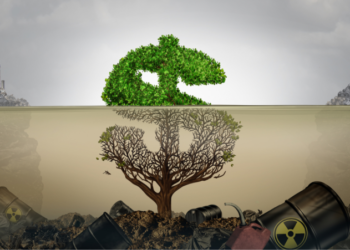Today, more than 700 million people face hunger.
Each year, one-third of all food produced is wasted which is enough to feed 2 billion people.
We are a family of around 8 billion; expected to grow beyond 9 billion by 2050.
Global agri-food systems were responsible for 16 billion tonnes of Carbon-dioxide emissions in 2020: an increase of 9% from 2000.
The above information will definitely compel you to question the sustainability of our present Agri-food systems. Humanity is going through a tough phase of climate change and food being the centre of life; has a major role to play. It is time for us to make our food production systems more sustainable and resilient to inevitable changes coming our way.
What are Agri-Food Systems?
It comprises of all the systems involved in food production, distribution, storage, and consumption. Cultivation of crops, livestock farming, aquaculture, and fisheries; all are covered under the umbrella of Agri-food systems. The choices we are making to feed ourselves will decide the future of our coming generations.
Conventional Vs Sustainable Food systems
Conventional Food system is the child of human need and innovation. It involves the use of synthetic chemicals and vigorous exploitation of natural resources to increase the yield. Sustainable food system involves conscious use of natural resources to meet the food security and nutritional demands while keeping in mind the interests of future generations. Sustainability guards social, economic, and environmental interests of all stakeholders involved.
Why Conventional system is unsustainable?
Sustainable food system is one of the core elements of Sustainable Development Goals Agenda 2030 to meet the goals of zero hunger and fight malnutrition. Current production-oriented food system is moving forward in one dimension; that is meeting the food demands of growing population. The dimensions of soil health, interests of marginalised communities, conservation of biodiversity, conscious use of water resources, maintaining the nutritional value of food, and averting the wastage of food are ignored.
Loss of biodiversity and poor soil health
Soil is a living system as well as provider of life. Use of pesticides and fertilisers has compromised the land’s potential for production. Soil’s organic matter has dramatically decreased; which is necessary to retain nutrients in soil and fight soil-borne diseases. Other impacts are soil acidification and disruption in mineral cycles. I remember that it was taught in schools that Earthworms are farmer’s best friend. But now farmers have betrayed their best friends and many other tiny friends who used to live in soil.
How many of us remember the local varieties of crops? Even farmers know about hybrid varieties only and the prevalence of monocultures has resulted in cultivation of fewer crop varieties. Actual biodiversity loss is happening in the crop varieties as Food and Agriculture Organisation has said that more than 90% of crop varieties have disappeared from our fields. But we can cover this loss by regrowing the local crop varieties; if not on large-scale, it can be started on pilot basis.
Deforestation and GHG emissions
It was said at COP 26 that agricultural expansion is responsible for 90% of global deforestation. Forests are cleared for arable land and livestock grazing which collectively accounts for more than 50% of decreased forest cover worldwide. Global Agri-food system is responsible for one third of human caused GHG emissions. On one hand, we are clearing the forests and on the other hand, emitting greenhouse gases. This imbalance in the generation and absorption of carbon has made global warming worse. When we are taking help of Information Technology Industry in every other field, why cannot we adopt precision agriculture for sustainability?
Overexploitation of Livestock Industry
Livestock has been part of human civilisation since ancient times and it is a vital element to meet global food demands. Now, this traditional alliance has been shaped into Industrial Livestock farming in which all the just or unjust means are applied to increase the output. This sector emits 7.1 gigatonnes of carbon dioxide every year. We have invaded the sacred reproduction cycle of animals by artificial insemination and injection of hormones and steroids. This raises an important question for discussion? Do we only care about how much can be produced without bothering about how it is produced and how it will impact the health of living-beings and planet? This over exploitation has led to the emergence of zoonotic diseases; the recent example is Corona Virus.
Global hunger and food wastage
Is growing ample food really justified; When millions are malnourished and millions are facing hunger and what an agony to witness 1.3 billion tons of food being wasted each year. World Health Organisation states that deaths of 45% of children under 5 years is linked to undernutrition. Humans need quality food; not the quantity food laden with chemicals. All these facts and figures reinforce the need to make our food systems sustainable.
Overfishing is a threat to marine life
Those days are gone when people used to go for fishing as a recreational activity. Cyanide fishing and Blast fishing has replaced it to meet the increasing demands of sea food industry. Another technique used is Bottom Trawling which disturbs the sea bed and is detrimental for corals. Many fish species are endangered due to overfishing and a report published by Food and Agriculture Organisation has estimated that 70% of global fish population is depleted. People obsessed with sea food need to realise that their taste buds are falling heavily on planet.
A change is on the way!
In July 2023, United Nations Food Systems Summit+2 happened in Rome Italy to assess the progress made on the commitments of 2021 UN Food Systems Summit. World leaders shared the local knowledge and efforts made towards eco-friendly food production. But it is still a long road; definitely without a destination as we need to keep moving towards sustainability till our race exists. COP 28, taking place in UAE, in December 2024 will prioritize the need to mend food systems. It will focus on four main pillars: National Action, Non-state stakeholders, innovation, and finance to mobilise the needed resources to make agri-food systems more sustainable. After all, we owe the food resources of this planet to our children and grandchildren.









